
How to Get Rid of Spiders | DIY Or Hire Professional?
Great, spiders are entering your home, now what do you do? Learn how to get rid of spiders using the following tips and strategies.
Did you know that dozens of spiders probably live in every room in your home?
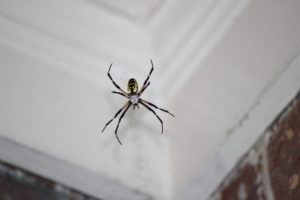
While you may only see a few here and there, an unchecked spider infestation can turn into a real-life nightmare.
But what exactly can you do to fix a spider problem in your home? What about preventing it?
If you’ve gotten as far as reading an article on extermination, it’s time to act on your instinct to protect your home from these critters.
So keep reading to learn more. We’ll cover a few tips on how to get rid of house spiders and give you a little more insight into your pest problem.
1. Hire a Professional
No matter what, your best guarantee for getting rid of spiders in your home is to hire a professional exterminator. While it may be tempting to perform a DIY service, it can do more harm than good.
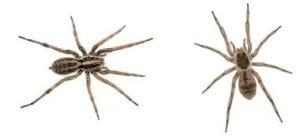
While DIY extermination methods and storebought spider-killing products may afford some short-term peace, this might give spiders an uninterrupted chance to breed and multiply while hiding. This can worsen your pest control problem and make it more expensive in the long run.
Exterminators also aren’t just equipment technicians. They also have great knowledge of the species local to your area, which can specify and perfect an extermination strategy. They’ll also know how to react to and prevent spider infestations problems, giving your home the best chance to repel and dissuade a separate, future pest control problem from forming.
2. Essential Oils
Sometimes, using essential oils will only provide a temporary solution. But it can still be a great, natural method for getting rid of spiders. In particular, they hate the smell of peppermint, eucalyptus, and tea-tree.
Combine 1/2 cup of vinegar, 1 cup of water, and 20 drops of your essential oil of choice and spray it around your house, especially on any openings that spiders can use to enter your home. Spiders won’t be too keen on nesting in your home anymore.
3. Vacuum Up the Webs
Even better than fixing a problem is preventing it. By scouring your home and vacuuming up all the webs you can find, you’ll remove many spider habitats. But don’t rest after you’ve done an initial deep sweep.
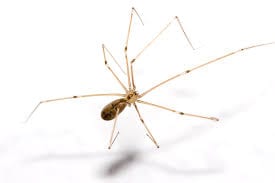
Afterward, inspect your home on a regular basis and vacuum any webs you find. In fact, regularly vacuuming your entire home can ensure that smaller spiders or eggs don’t stand a chance.
4. Use Insecticide
As mentioned before, using spider-killing products after an infestation might not do much good. But using it before an infestation starts can prevent spiders from even being tempted to enter your home.
Of course, it’s best to cover and seal any openings. However, you can use insecticide for those areas to ensure that spiders have no way of invading your home.
5. Set Spider Catchers
Spider catchers can relocate spiders alive instead of killing them. This is most viable for small infestations, ones that are developing and easy to manage and get under control within a short time. But this method should also be coupled with preventative measures to ensure that these spiders don’t come crawling back in.
Why Are There Spiders in My Home?
When too many spiders make themselves comfortable in your humble abode, then it’s time to understand and address their many possible avenues into your home. Spiders can get into almost any small crevice and be carried into a home through objects, especially those made of untreated wood.
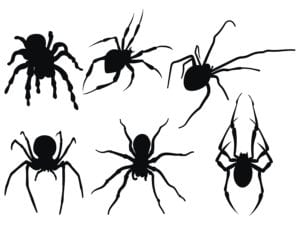
Spiders also breed during the late summer and early fall seasons, which is when you’ll most likely spot the most spiders. Flies, a reliable food source for spiders, also tend to breed during hotter months. If plenty of flies are in your home, then spiders have even more incentive to go in for shelter.
Most spiders prefer small, hidden hiding spaces, making cluttered and disorganized homes a perfect housing spot for these eight-legged critters. Some spiders prefer drier options for shelter, while others prefer spaces with higher humidity like basements or sheds.
Which Spiders Are Dangerous?
Dangerous or not, an overabundance of pests makes for a very uncomfortable living experience for any human resident. Not only that, but anyone with a spider bite allergy will experience uncomfortable and adverse effects from virtually any spider bite. But it’s still good to know which common house spiders are most dangerous, especially if this information urges you to take action as soon as possible.
Brown Recluse Spider
These spiders can be found in several US states and can thrive in both arid and humid areas. They’ll be in basements, between walls, in furniture, etc. Brown recluse spiders are dangerous because of their venom, which has a cytotoxin that affects the tissue upon contact and requires immediate medical attention.
Sac Spiders
Sac spiders aren’t venomous, but their bites can cause a good amount of swelling and soreness at the contact site. Those with spider bite allergies might need urgent care treatment after a sac spider bite occurs.
Black Widow
The black widow spider is notorious for a very good reason. Infamous for its bite and the red marking on its back, its venom can cause serious medical issues within the first few hours of its bite. Though no one has died from its bite since the 1980s, it’s most likely because people head straight for the ER as soon as they can.
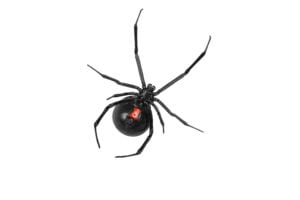
Get Unwanted Spiders Out of Your Home ASAP!
Seeing one or two spiders around the house isn’t the end of the world, as long as you eliminate the problem when you can. But sometimes, pest control problems spiral out of control, making your home uninhabitable to humans. If you relate to this scenario, then it’s time to call a professional exterminator as soon as you can!
At Pest Extinct, we understand how much havoc pests can wreak on your home life. That’s why we offer expert extermination services for any conscientious homeowner. So if you need to get rid of spiders in your home, get a quote from us today!

Leave a Reply